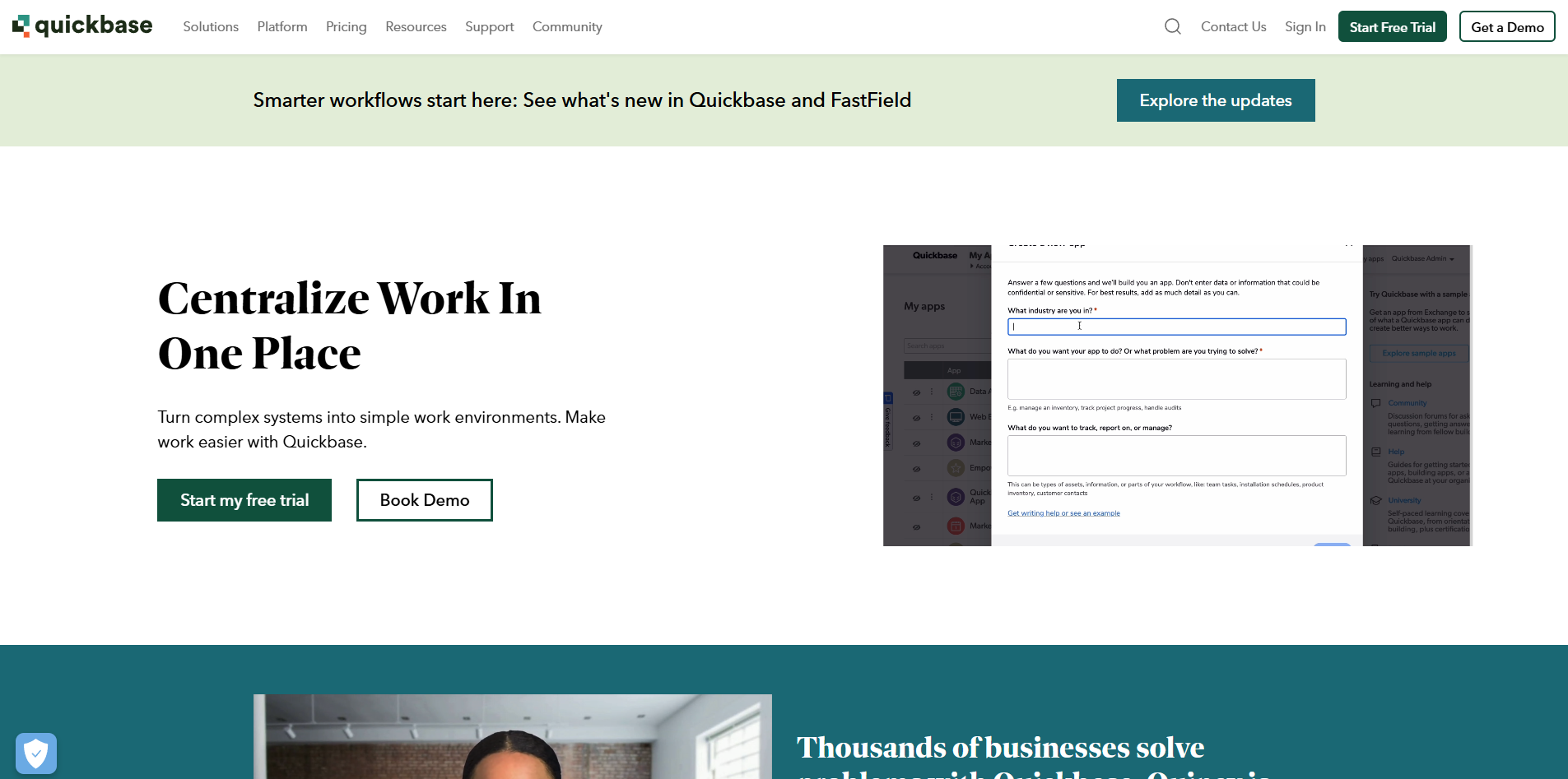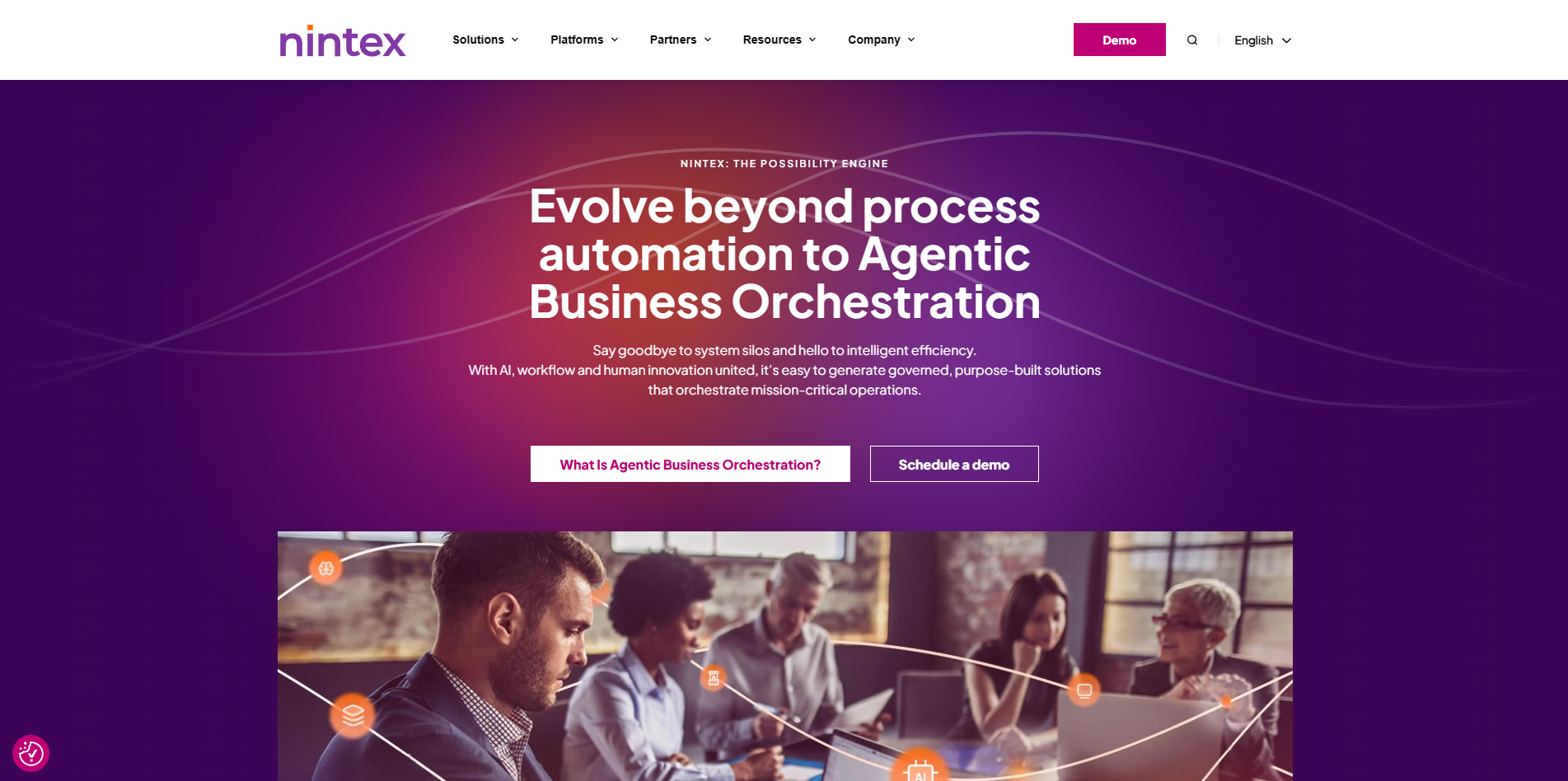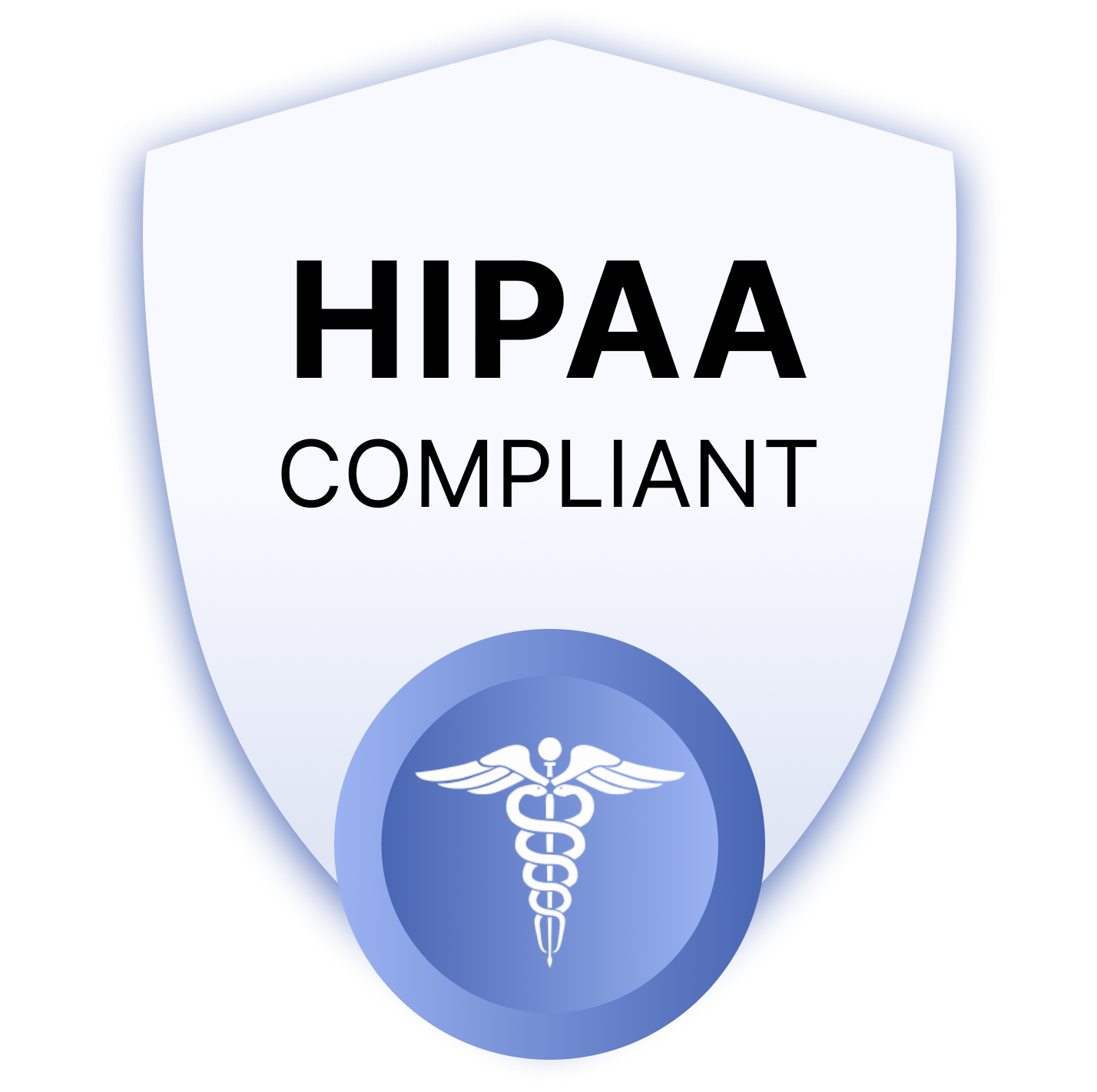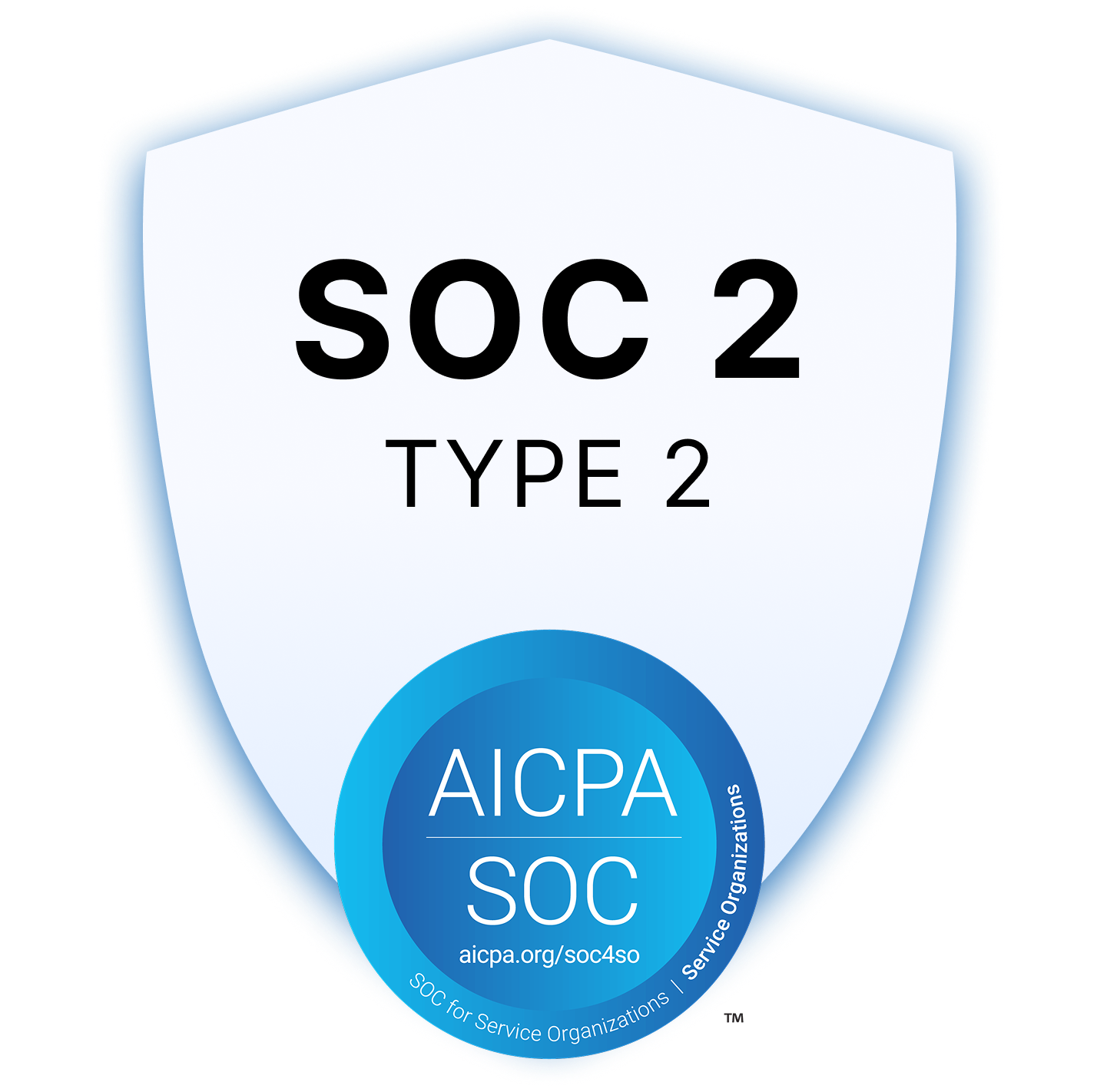
7 mins
HIPAA Compliant Website Builder
Summary
Your Competitors Are Embracing AI – Are You Falling Behind?
Building a website in the healthcare space comes with unique responsibilities, especially when it comes to protecting sensitive patient information.
A HIPAA compliant website builder ensures that your online platform meets strict privacy and security regulations, safeguarding data while maintaining trust.
Selecting the best website builder for medical practices, insurers, and health tech companies is essential for ensuring compliance and avoiding costly violations.
In this article, we’ll explore who needs HIPAA compliant websites, review the best builders in 2026, and highlight key features to look for when making your choice.
TL;DR
- HIPAA compliance is critical for any organization handling protected health information (PHI).
- A HIPAA compliant website builder ensures secure, encrypted, and regulation-friendly digital experiences for patients and providers.
- Top builders in 2026 include options tailored for healthcare providers, insurers, and health tech companies.
- Look for features like encryption, secure hosting, audit trails, and scalable integrations.
The Importance Of Using A Healthcare Website Builder That Is HiPAA Compliant
Healthcare websites often process sensitive information such as patient records, medical histories, insurance claims, and billing data. If this data is not properly secured, it can result in privacy violations and heavy legal penalties.
What website builder is HIPAA compliant? A HIPAA compliant website builder ensures all data is handled according to the Health Insurance Portability and Accountability Act (HIPAA), protecting both patients and organizations from breaches while building trust.
Who Needs HIPAA Compliant Websites?
Various organizations within the healthcare industry need to have HIPAA compliant websites in place. Let’s take a look at these here:
Healthcare Providers: Doctors, Hospitals, And Clinics
Healthcare providers are at the frontline of patient care, and their websites often store or transmit sensitive health information such as medical histories, test results, and appointment data.
A HIPAA compliant website builder ensures these digital platforms offer encrypted connections, secure hosting, and role-based access to protect PHI.
Beyond compliance, providers also benefit from patient portals, telehealth integrations, and secure online forms that enhance the patient experience while keeping data safe.
Health Insurance Companies
Health insurers process massive volumes of sensitive data every day, from claims and policyholder records to billing and appeals. A non-compliant system puts this data at risk of breaches and regulatory penalties.
Using a HIPAA compliant website builder gives insurers peace of mind with secure claims portals, document upload features, and strict access controls for employees.
In addition, compliance helps insurers build credibility with customers by demonstrating a commitment to safeguarding their personal and financial information.
Medical Billing And Claims Processing Companies
These organizations act as critical intermediaries between healthcare providers and insurers, often handling both medical and financial data. Because billing details are tied directly to patient records, even a small oversight in data protection can lead to severe HIPAA violations.
A HIPAA compliant builder supports secure data transmission, encrypted payment gateways, and detailed audit trails. This not only ensures compliance but also creates smoother workflows, reducing errors and delays in reimbursement.
Pharmacies And Pharmaceutical Providers
Pharmacies manage sensitive prescription information, refill requests, and patient communications that require strict confidentiality. A HIPAA compliant website builder allows pharmacies to safely handle online prescription orders, track medication histories, and provide patient access to secure health portals.
For pharmaceutical providers, compliance extends to clinical trial data, patient outreach programs, and online drug information platforms.
In both cases, strong data security measures ensure that trust remains at the center of every patient interaction.
Wellness Programs & Health Tech Startups
Digital wellness platforms and health tech startups are rapidly reshaping the healthcare landscape, from telehealth services to wearable device integrations. These organizations frequently deal with PHI, whether tracking fitness metrics, offering virtual consultations, or delivering personalized care plans.
With a HIPAA compliant website builder, startups can innovate without compromising security, ensuring encryption, access controls, and scalable hosting are in place. This not only protects sensitive data but also helps emerging brands earn credibility with users, investors, and partners.
Best HIPAA Compliant Website Builders In 2026
Let’s take a look at the best HIPAA compliant website builders, exploring their top features, who they’re best suited for, and their pros and cons.
1. Quickbase

Top features: Quickbase is a powerful low-code platform that enables healthcare organizations to rapidly build customized applications without requiring extensive coding knowledge. It offers HIPAA-compliant hosting, role-based access, and advanced reporting tools, making it ideal for teams that need both flexibility and compliance.
For whom: Best suited for mid-to-large healthcare organizations that require scalable solutions and want to create unique workflows, from patient intake tracking to secure data dashboards.
Pros & cons: The biggest strength of Quickbase is its customization; you can build almost anything on top of its secure infrastructure. However, due to the flexibility, a learning curve exists, and organizations may need to invest in staff training or developer support.
Pricing: Starting at around $30 per user per month, with enterprise plans available for larger deployments. While affordable at smaller scales, costs can rise quickly for larger teams.
2. Caspio

Top features: Caspio is a cloud-based, drag-and-drop platform that emphasizes ease of use while still offering HIPAA-compliant hosting. It comes with pre-built healthcare templates, such as appointment scheduling systems, claims management apps, and patient portals, allowing organizations to launch secure websites without starting from scratch.
For whom: Ideal for smaller healthcare practices, clinics, and insurers that need fast deployment and don’t have large technical teams. Caspio bridges the gap between convenience and compliance.
Pros & cons: Caspio excels in speed and simplicity, allowing even non-technical users to create secure healthcare apps quickly. However, it offers limited design customization compared to more advanced builders, making it less attractive for organizations that need branded, fully tailored digital experiences.
Pricing: Plans begin at about $100 per month, with HIPAA compliance available on higher tiers. The investment is reasonable for smaller practices but may become costly for large-scale enterprises with complex requirements.
3. Nintex

Top features: Nintex is an enterprise-grade platform focused on workflow automation and process management. Its HIPAA-compliant hosting, advanced audit trails, and integration capabilities make it a strong choice for organizations with highly regulated operations. Features like automated approvals, secure document storage, and detailed compliance monitoring add significant value.
For whom: Designed for large healthcare enterprises and hospital networks that manage multiple processes from patient onboarding to claims processing across different departments.
Pros & cons: Nintex offers unmatched automation and compliance support, helping organizations save time while minimizing human error. However, its enterprise focus means it comes with higher pricing and complexity, which may be excessive for smaller practices or startups.
Pricing: Enterprise-level pricing is customized based on organizational needs, making it best suited for large-scale healthcare providers that can invest in long-term automation and compliance infrastructure.
What To Look For When Choosing A HIPAA Compliant Website Builder
It’s important to bear in mind some essential features when selecting the right HIPAA compliant website builder for your organization.
1. Encryption & Secure Hosting
Encryption is the backbone of HIPAA compliance. A builder must ensure data is encrypted both in transit (using SSL/TLS protocols) and at rest on secure servers to protect against interception and breaches.
Beyond the basics, look for providers offering advanced encryption standards (AES-256) and geographically redundant, Tier III or higher data centers.
Secure hosting also means ongoing monitoring, intrusion detection systems, and proactive patching to address vulnerabilities before they can be exploited.
2. Audit Logs & Access Controls
HIPAA requires that every access to PHI be logged and traceable. Audit logs track who accessed data, when, and what actions were taken, creating a transparent record that helps identify potential misuse or unauthorized access.
Pairing this with granular access controls ensures employees only see the data they need to perform their roles, minimizing exposure.
A strong builder should also offer multi-factor authentication (MFA) and customizable user permissions for maximum security.
3. Business Associate Agreement (BAA)
A BAA is not optional; it’s the legal contract that makes the website builder accountable for protecting PHI. Without it, even if the builder has strong security measures, your organization could still face compliance violations.
A reputable HIPAA compliant website builder will readily sign a BAA and clearly outline their shared responsibility for data security.
Always confirm what services are covered under the agreement, as some providers may limit compliance to specific plans or features.
4. Scalability & Integrations
Healthcare organizations need solutions that grow with them. A good builder should support scalable hosting environments capable of handling increased traffic, larger data sets, and expanding user bases without compromising performance.
Integrations are equally important; the ability to connect seamlessly with electronic health records (EHRs), customer relationship management (CRMs), billing software, and telehealth tools ensures smooth operations.
Builders offering robust APIs and third-party app marketplaces give organizations flexibility as technology and patient needs evolve.
5. Support & Reliability
Even the most secure systems need human support. Around-the-clock technical assistance is essential for healthcare organizations that can’t afford downtime, especially those running patient portals or telehealth platforms.
Beyond availability, evaluate the provider’s response times, service-level agreements (SLAs), and reputation for reliability. Frequent updates, proactive monitoring, and clear communication channels indicate a builder that takes compliance seriously.
A strong support system can be the difference between quickly resolving an issue and facing costly disruptions.
Key Takeaways
A HIPAA compliant website builder protects sensitive data and ensures legal compliance, and is essential for healthcare providers, insurers, billing companies, and health tech.
Top builders in 2026 are Quickbase, Caspio, Nintex, among others. Each of these website builders comes with its own pros and cons.
Always check for encryption, audit logs, BAA availability, and integration options before deciding.
FAQs
Is HIPAA Compliance Mandatory?
Yes. If your organization handles protected health information (PHI), HIPAA compliance is legally required.
Non-compliance can result in heavy fines, lawsuits, and loss of patient trust, making adherence essential for any healthcare-related business.
Is GoDaddy HIPAA Compliant?
No. GoDaddy does not offer HIPAA-compliant hosting or Business Associate Agreements (BAAs).
Because of this, it is not suitable for storing, transmitting, or managing PHI in any capacity.
Is Wix HIPAA Compliant?
Wix is not HIPAA compliant and does not provide a BAA.
It should not be used for healthcare websites or platforms that handle sensitive patient data.
How To Make A HIPAA-Compliant Website?
Choose a HIPAA-compliant website builder and ensure all data is encrypted in transit and at rest.
Sign a BAA with your hosting provider, implement strict access controls, use secure servers, and schedule regular audits to maintain compliance.
Unlock 300+ integrations with no hidden fees, bespoke rewards, and dedicated support
Related Articles
Related Articles









